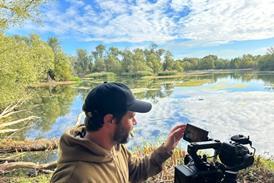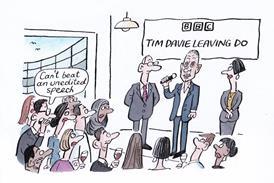The recent recommendations for the BBC's video-on-demand plans have left me torn. As an operator of a commercial VoD service, I'm wary of the competition the BBC could present. It has vast funds, privileged access to content, a huge online audience and a platform for extensive promotion. So, of course, I welcome limitations.
Conversely, the BBC can, and should, play a leading role in proving new technologies and forging new audiences for them to the benefit of us all, just as it has helped make the UK one of the most dynamic digital terrestrial TV markets in the world with Freeview.
The tragedy is just how long it takes an organisation such as the BBC to squeeze its groundbreaking services out and how the ever-mounting extra hurdles of well-meaning external and internal reviews are making innovation near impossible for them in a fast-paced technology market.
Ofcom's suggestions, mostly echoed in the BBC Trust's recommendations, are well considered and generally right. Catch-up and simulcast services enhance broadcast offerings with little threat to other online services. But anything that starts to stray into assembling a longer-term archive of material would drain secondary markets, traditional retail and rental, as well as the new on-demand equivalents.
The BBC's greatest advantage is a lack of a commercial imperative. It can experiment with services that are yet to find a paying audience. That said, nothing puts a fire under you and forces focus like the question 'Is it making money?' It's easy to lose direction at the BBC and the pondering of wishy-washy 'public value' is no substitute. In many ways, it's a wonder the BBC's new media folk ever maintained an advantage long enough to pump out the stream of world-recognised innovations it has spawned over the past decade. The tide may be turning. As the pace of development in new media grows, so too has the number of hoops for the BBC to jump through - like market impact assessments and public value tests - self-imposed by an organisation running scared.
Before Pioneer Online, I worked at BBC New Media and watched as its iPlayer Web VoD service struggled against this tide. It could have easily been out in the market a year ago or earlier, with hundreds of thousands of users all used to downloading TV online and connecting their PCs to their TV sets. We should be seeking ways to make it easier for BBC to introduce new services (and migrate them as markets mature). Why are we so blind to the commercial advantage of having someone do it first who is fundamentally not a competitor? They say you can tell the pioneers by the arrows in their backs. The BBC should be our fleet-of-foot scout drawing fire from us.
Gideon Summerfield is managing director of Pioneer Online


























No comments yet